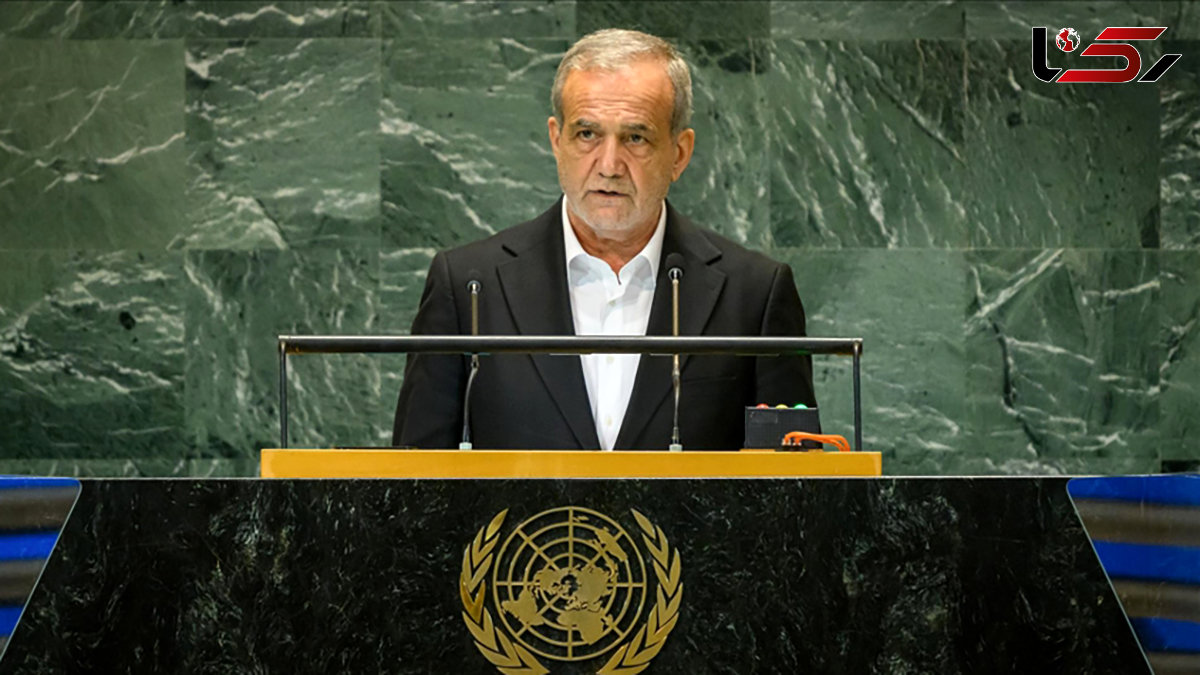Iran faces renewed UN sanctions as Europe invokes ‘snapback’ mechanism
Rokna Political Desk: European powers have reimposed UN “snapback” sanctions on Iran, accusing Tehran of breaching its nuclear commitments and escalating tensions in the Middle East.

According to Rokna, citing CNN, Iran came under so-called snapback sanctions on Sunday, local time, amid heightened tensions in the Middle East. But what does that actually imply?
The phrase refers to the reinstatement of United Nations sanctions on Iran, a decade after they were lifted as part of a landmark agreement designed to limit and monitor the country’s contentious nuclear activities.
France, Germany, and the United Kingdom stated they had “no choice” but to activate the snapback, accusing Tehran of failing to uphold its obligations under the deal. However, this reversal could also push Iran further away from international oversight of its nuclear work.
The sanctions were scheduled to be permanently lifted on October 18. Yet the original pact, the Joint Comprehensive Plan of Action (JCPOA), which suspended sanctions in exchange for restrictions on Iran’s nuclear program, allowed any party to reimpose sanctions ahead of that date if it determined Iran was not meeting its commitments.
In August, European envoys told the UN Security Council that Iran had breached “nearly all of its JCPOA commitments” and that they were preparing to invoke the snapback mechanism. They provided Iran a month’s notice in August, aiming to begin the process before Russia assumed the Security Council presidency in October.
Several meetings and phone calls were held this month with Iranian Foreign Minister Abbas Araghchi and other officials, but none achieved progress on Europe’s main demands: evidence of Iran’s readiness for a diplomatic solution, compliance with IAEA monitoring and inspections, and clarification on the status of more than 400 kilograms of highly enriched uranium.
European countries also pressed for the revival of Iran’s direct talks with Washington.
Western governments and Israel have long accused Tehran of pursuing nuclear weapons. Iran, however, maintains that its nuclear program is strictly peaceful.
Earlier this month, the IAEA and Iran reached an arrangement to resume inspections, but European diplomats dismissed it as too vague to provide confidence. Araghchi told Iranian state media that IAEA access would remain limited and subject to conditions set by Iran’s Supreme National Security Council. He further noted that enriched uranium stockpiles may stay out of reach, buried beneath the rubble of nuclear facilities.
The snapback sanctions officially took effect on Sunday.
The foreign ministers of France, Germany, and the UK — the three European participants in the JCPOA — urged in a joint statement: “We call on Iran and all states to fully comply with these resolutions.”
They criticized Tehran for “repeatedly violating” its JCPOA obligations, saying they “had no option but to trigger the snapback,” while stressing this move “does not signal the end of diplomacy.”
On Saturday, Iran announced it was recalling its ambassadors from Paris, Berlin, and London. Araghchi also wrote to the UN Security Council, denouncing the European action as “a blatant misuse of process,” according to IRNA.
Snapback restores the UN sanctions originally imposed between 2006 and 2010 — including an arms embargo and a ban on Iran accessing technology for its ballistic missile program. Iran’s oil and financial sectors are also affected.
However, the European decision does not bind the other JCPOA signatories, China and Russia, both long-standing allies of Tehran.
The United States withdrew from the JCPOA during Donald Trump’s first term and adopted a “maximum pressure” policy through a strict sanctions regime. Snapback now effectively places Europe closer to Washington’s stance.
Iran has responded defiantly.
“With the ‘snapback’ they close the road, but it is thought and intellect that will open or build the road,” President Masoud Pezeshkian declared.
The European Council on Foreign Relations (ECFR) observed: “The economic effect of UN and EU sanctions on Iran will be limited, given the severity of US restrictions.” Still, it added: “One practical issue is that if a future nuclear deal were to lift UN sanctions, it remains uncertain whether the EU would follow suit.”
The ECFR further noted: “It is unimaginable that — after suffering military strikes — snapback could coerce Iran into accepting the US demand of zero uranium enrichment.”
Iranian officials had earlier warned that activating snapback would end Tehran’s cooperation with IAEA inspections. Some also cautioned that renewed UN sanctions could push Iran to withdraw from the Nuclear Non-Proliferation Treaty (NPT), effectively ending global scrutiny of its program.
Pezeshkian, however, told reporters and analysts that Iran does not intend to quit the NPT in reaction to the revived sanctions, according to Reuters.
Following Israel’s 12-day assault on Iran in June and US airstrikes on the Fordow nuclear facility, the current condition of Iran’s nuclear program remains uncertain.
Trump claimed Fordow had been “obliterated,” though other assessments suggested the facilities were severely damaged and the program may have been delayed by up to two years.
Araghchi has said much of Iran’s enriched uranium lies buried under rubble. The condition of key equipment in Isfahan — crucial for enriching uranium to weapons-grade and converting it from gas to metal — is also unknown.
International inspectors have not been able to access the sites since the June conflict.
Send Comments